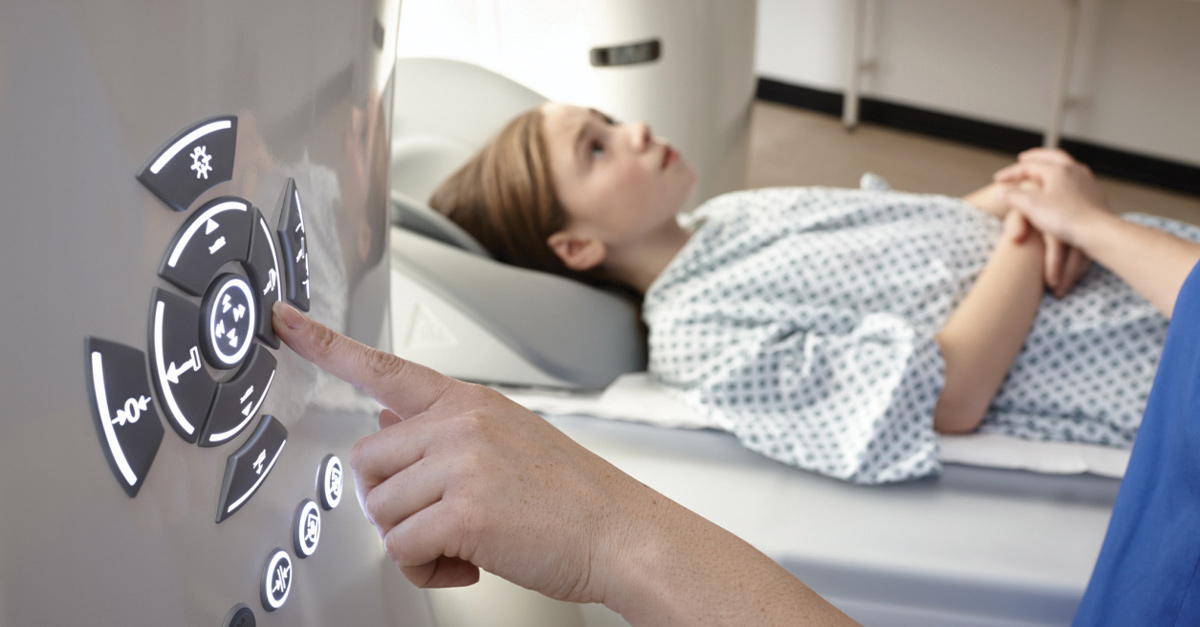MRI stands for magnetic resonance imaging. When an X-ray or CT scan may not reveal enough detailed information about your condition, an MRI can help diagnose a disease or shed further light on the extent of an injury without surgery. How does this work? Stimulation from the magnetic waves in an MRI machine prompts the water molecules of your body to temporarily realign. Radio waves from a computer then produce faint signals sent from these particles. The signals are then used to create detailed, cross-sectional images of your organs or tissue, which specialists can use for further diagnosis.
The type of MRI you may receive depends on the nature of your condition. Here’s more information about when and how these painless, non-invasive imaging services are used.
MRI of the Brain & Spinal Cord
Experts at the Mayo Clinic assert that an MRI is the most commonly used form of medical imaging to look at the brain and spinal cord. Doctors may use it to:
- Look for tumors and aneurysms
- Diagnose eye and inner ear conditions
- Assess brain injuries after trauma
- Check for changes caused by stroke
MRIs may also help diagnose multiple sclerosis and spinal cord conditions.
Breast MRI
While mammography and ultrasound are the standard imaging methods used to capture pictures of breast tissue, an MRI can also be implemented to further evaluate abnormalities detected through these tools. Most specifically, it may be used to screen women with dense breast tissue, or those who are at a high risk of breast cancer.
However, MRI is not recommended as a sole breast cancer screening test, as the American Cancer Society notes it may miss some cancers normally identified via mammogram.
MRI of the Bones & Joints
For bone issues or joint damage, an MRI may be used to detect issues that can’t be seen on X-rays. The imaging can help look for tumors of the bones, joint abnormalities in conditions such as arthritis, and bone infections.
Other Types of MRI
When needed, an MRI can also be used to look for disease, injury, or abnormal growths in other parts of the body, including:
- Ovaries
- Prostate
- Liver
- Kidneys
- Pancreas
- Spleen
Depending on your particular situation, the reason for your test, and its results, your doctor may give you alternate instructions following your MRI, but in general, no specific care is needed afterward.
Heartland Imaging is a full-service imaging center in Louisville, KY, dedicated to providing consistent, quality, state-of-the-art outpatient imaging services. If you’ve been prescribed an MRI from your doctor, contact Heartland Imaging to ask questions about the procedure, and schedule your appointment by calling (502) 429-6500.

